PHOTOS: Snapshots of life in quarantine in the midst of a pandemic
How an amateur golfer, a pilot, a landscape architect and others are dealing with isolation, to protect their loved ones from a possible coronavirus spread


Tanvi Hubli, Amateur golfer
Age: 21
The greens were replaced with a carpet and the golf course with a hotel room for amateur golfer Tanvi Hubli, when she travelled from Ahmedabad to Bengaluru, and went through a seven-day quarantine at The Leela Palace.
Hubli has been training in Ahmedabad for the past few years. When the lockdown was announced, “I was living in a service apartment with two roommates. But the landlord was creating several issues, including not maintaining proper hygiene,” she recalls. Soon she moved to a friend"s home. “I had a great time and felt like a part of their family,” she says. “But I really wanted to go home.”
However, there was no clarity on where she would be staying after returning to Bengaluru. “It was only after landing that I was given the options,” she says. Being a sportsperson, living in a confined space for seven days does not come naturally to Hubli. “But I was prepared.” To keep herself busy, Hubli would either putt or work out. Apart from the loneliness, her quarantine experience was quite smooth. “The staff was very helpful they had a doctor on call if we ordered something
they would pick it up and deliver it to our room,” she adds.
Things were not normal when she finally made it home. “I came home after six months, but I couldn’t hug my parents, sister or my grandmother,” she recalls, spending time in isolation in her room. “This is like a full-stop to everything. It made me realise I had forgotten how to enjoy life.”
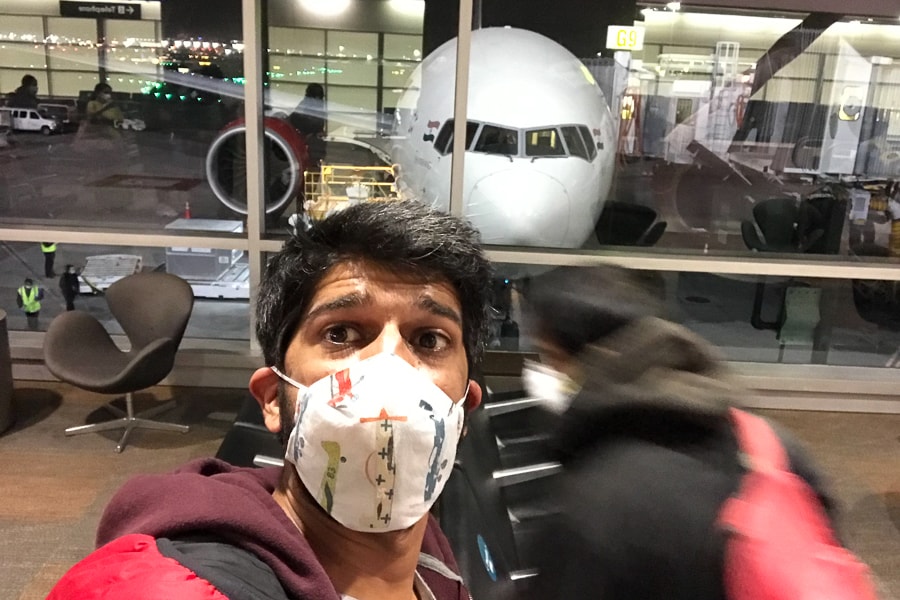
Pavit Dhillon, Pilot
Age: 27
Pavit Dhillon had just finished his course at JetExe Aviation in Sacramento, California, and was all set to come back home on March 22, when India announced its lockdown. He was stuck in Sacramento for exactly two months and two days, with nothing to do. “I was done with everything I was supposed to, and we weren"t even allowed to work,” he says. Luckily for Dhillon, his landlord allowed him to extend his stay, but “we were paying through our nose”. There were other Indian students who were stuck, so there was good company. “There was no lockdown in the US it was a stay-at-home order. So we played board and card games.”
However, Dhillon had not seen his family for more than a year and couldn"t wait to return. “In April, the Indian embassy had asked us to register so they could keep tabs on how many Indian students were stranded and wanted to come back,” he says. “Once the Vande Bharat mission was announced, on May 10 I got to know I was selected to fly on the May 13 flight back to Delhi.”
On landing, he was put in a 14-day quarantine at Le Meridian, New Delhi. “I picked this hotel since it was close to home,” he says. “The experience was pretty amazing they were serving us three meals. I couldn’t complain.” But, as expected, the stay was expensive, Dhillon paid `45,000 for 10 days. “I could have stayed at a government facility, but I chose to prioritise my safety.”
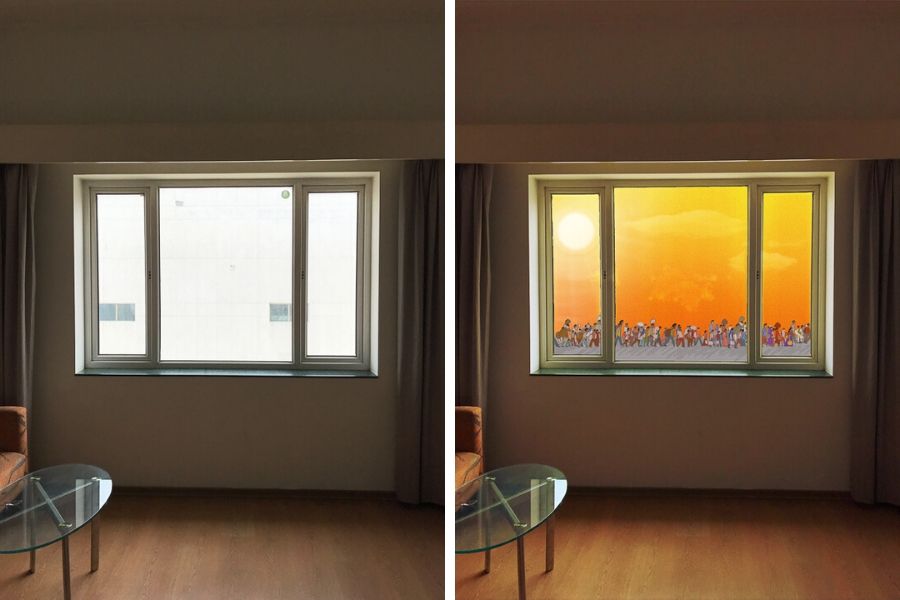 Courtesy: Priyadarshini Kacker
Courtesy: Priyadarshini Kacker
Priyadarshini Kacker, Landscape Architect and Illustrator
Age: 35
“This room is so depressing,” Priyadarshini Kacker thought to herself, the minute she stepped into her hotel quarantine room at Lemon Tree Hotel in Ghaziabad.
Kacker was in Australia for a vacation when the lockdown was announced. For close to two months she stayed in an Airbnb in Gold Coast. “I was happy to stay for longer, if that meant avoiding quarantine in India,” she explains, “but my father is high risk and my parents were alone, so I decided to come back.”
“It wasn"t the journey back I was anxious about, it was the quarantine,” says Kacker, who took the first Vande Bharat flight from Sydney. And unlike what she expected, it was packed. She says that despite asking repeatedly, she was not informed where she will have to quarantine till she reached India. “The quarantining rules weren’t clear and the lack of communication was getting on my nerves,” she says. Contrary to popular belief, individuals had to pay for the flight and hotel stay, and Kacker says it was not cheap.
The only thing that kept her going was her iPad. When she saw the view from the window, she says, “It was like a blank canvas, and I started drawing after months, ‘A room with a view’.
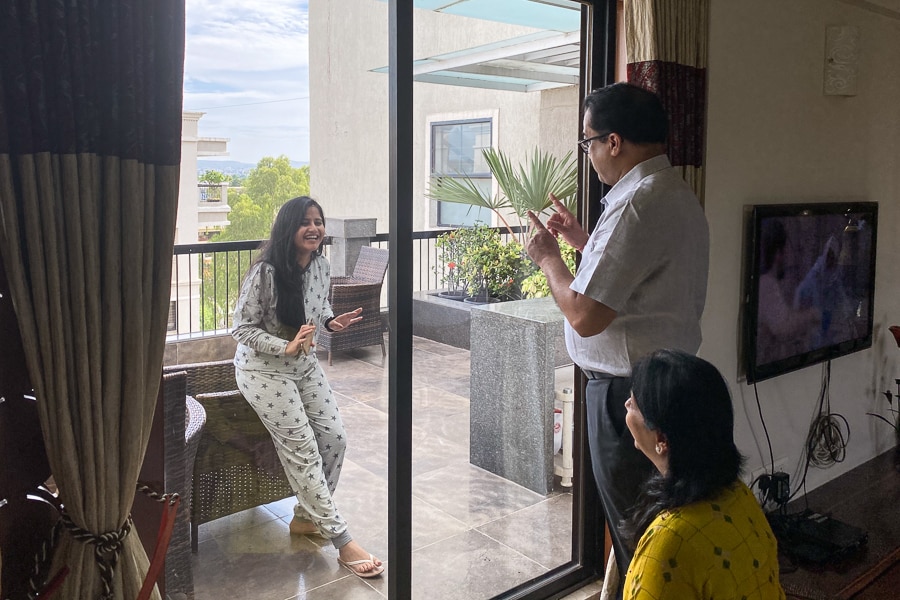
Swati Ganeriwala, Head (accounts), Vinod Garments, Nashik
Age: 28
Every evening at 5.45, Swati Ganeriwala would wait in the balcony, connected to the living room, but separated from it by a glass door. It would be time for her husband to be back home, but unlike the usual hug, she’d only see him through the glass door.
Ganeriwala went to visit her parents in Guwahati on March 16 and was scheduled to return on March 30. And although the pandemic had reached India, she didn’t expect things to turn out as they did. “We never expected the flights to stop,” she says. “Even when they did, I had made my peace with the three-week lockdown. Then the situation kept getting worse, and after the third lockdown I was fed up.”
When the flights finally started on May 30, she flew back to Mumbai and then drove to Nashik. “Of course I knew the risks and took all possible precautions, not letting my guard down even once through the journey,” she says.
Once she was home, she isolated herself in a room for seven days. “Every free minute my mother-in-law and grandmother got in the day, they kept me company,” she says. “Once my husband and father-in-law were home from work, they spent all their time with me.” Ganeriwala likes having a plan and having things under control, but the one thing this experience taught her was patience and learning to deal with uncertainties.
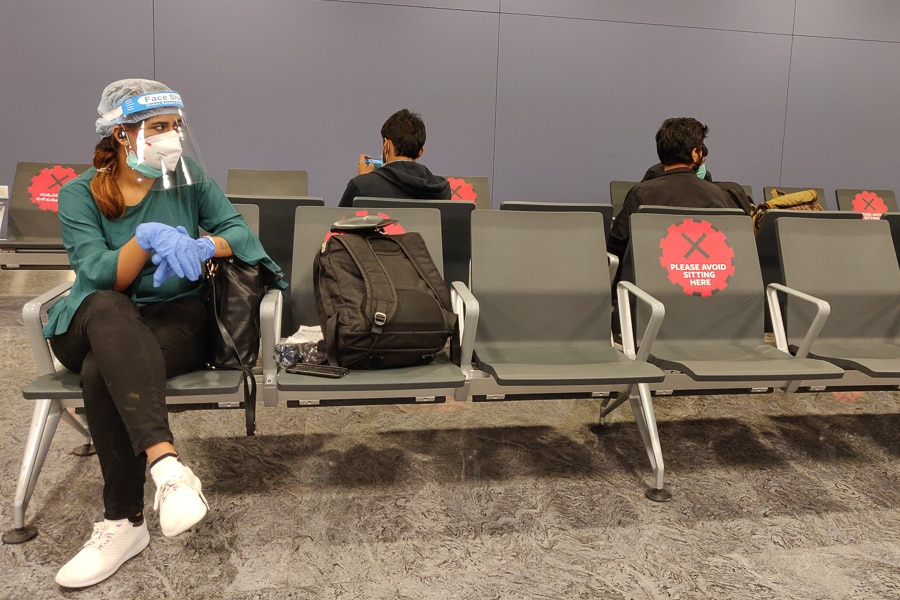 Image: Shruti Jain
Image: Shruti Jain
Sonali Bhadani, Assistant manager, finance, InterviewBit
Age: 27
When the nationwide lockdown was announced, Sonali Bhadani had three weeks left in her notice period at Ernst & Young India, and was expecting to begin her new job at Bengaluru-based startup InterviewBit on April 20. She had assumed things would be back to normal in a few weeks. But they only kept getting worse.
Bhadani had not expected to be greeted by her new teammates over a Zoom call on the first day of her new job. A week into it, she was already struggling to balance work and home chores. “One might think it’s easy, but it is really not,” she says. “There were days when my roommate and I were so caught up with work, our only proper meal would be dinner.”
Finally Bhadani took the tough call of flying back home to Ranchi. “We did a lot of research and took all the necessary precautions—from gloves to face shield—I was prepared to wear a PPE kit too,” says Bhadani. “But my younger brother, who is a doctor, told me how suffocating it is inside a PPE kit.” The anxiety of travelling during a pandemic remained with her till she reached home. “At every step, I was reconsidering the decision.”
From June 5, Bhadani was isolated in her room for seven days. “Even though I am home, this situation is not easy. It gets very depressing at times,” she says. “I have a niece and a nephew, both one-year-old. This is only the second time I am seeing them. I want this to end, so that I can go and hug them.”
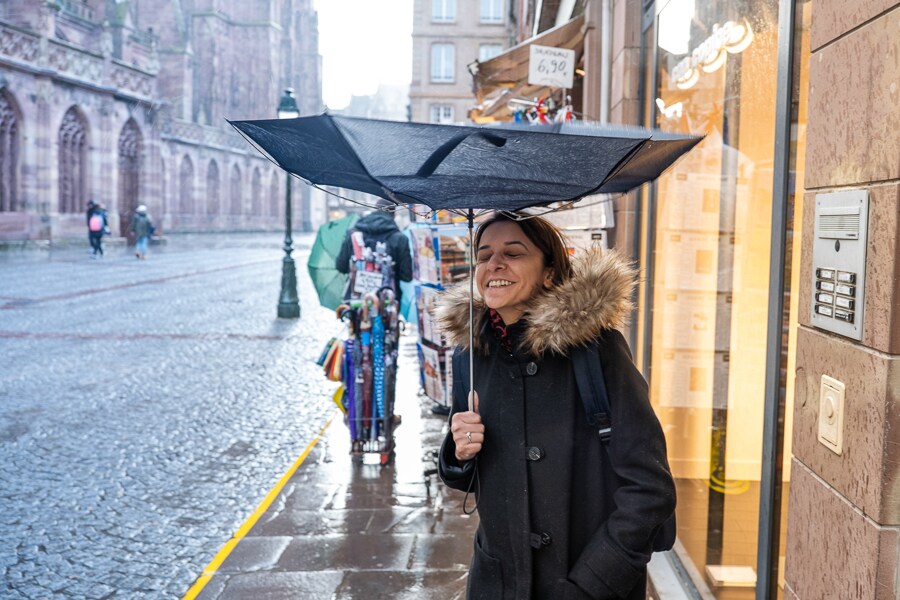 Image: R. Tordy
Image: R. Tordy
Isha Shah, Lawyer
Age: 33
In the first week of March, a day before her flight back from Cologne in Germany to Mumbai, Isha Shah had to undergo an emergency surgery, and was asked to avoid travel for at least 10 days. Once better, she could travel back but would need to undergo institutional quarantine in a government facility. “Given that my immunity was already very low, I decided to avoid travelling,” she says, “which, in hindsight, was a good decision. I developed some post-surgery complications, and was hospitalised again.”
The 33-year-old lawyer was on holiday in Germany for two and a half weeks, which turned into a four-month stay. “I was between jobs, and decided to come visit a friend here and attend the Cologne Carnival,” she says, from her friend"s home in Cologne. “Not only have I learnt the German way of living, but also experienced some medical tourism.” Her visa was first extended till June-end, and then till the end of July.
Although there were uncertainties, Shah has been enjoying her stay. Even when things were bad, “there was a lot of confidence in the way testing was being done, people were allowed to leave the house in pairs and it was reassuring to see people following rules and being disciplined,” she says.
In the next few weeks, Shah is set to fly back as soon as there is a direct flight to Mumbai, and stay quarantined in a hotel. “Nothing in life is certain. One day you think you are going on a holiday, and then a pandemic hits, and changes everything.”
 Image: Jay Dave
Image: Jay Dave
Shivangi Dave, Student, MDes Design Innovation, Massachusetts College of Art and Design, Boston, USA
Age: 25
“After two months at home, stepping outside my house was a surreal feeling,” says Shivangi Dave, who finally took her father’s bicycle for a spin when lockdown restrictions were eased. “I have never seen Ahmedabad this peaceful. I have started observing the little things, like how people smoke now—they have a mask, they remove it, and put it back on every other second. It’s live entertainment." During the weeks at home, though, it had been an overdose of technology, with watching TV shows or movies, and listening to music.
Two months ago, Dave had little choice but to pack up and fly back from Boston. “All my relatives were in the red zone.I either had to find accommodation outside my campus overnight, or come back home.” And given that the rest of her semester would have online classes, she chose to return. She landed in Ahmedabad on March 22 and thus began a 14-day room quarantine for her, and a home quarantine for her family. "My mom would do video calls with me,” Dave laughs. “My online classes were continuing as per Boston hours. So it felt like I was still living there.”
Being confined in a room was not easy. But college assignments kept her busy. Finally, getting out was a relief. "I would find excuses to go and buy groceries, even if it was a 5-minute drive," she says. “The roads were empty, but I would drive slowly, just so I could enjoy being outdoors.”
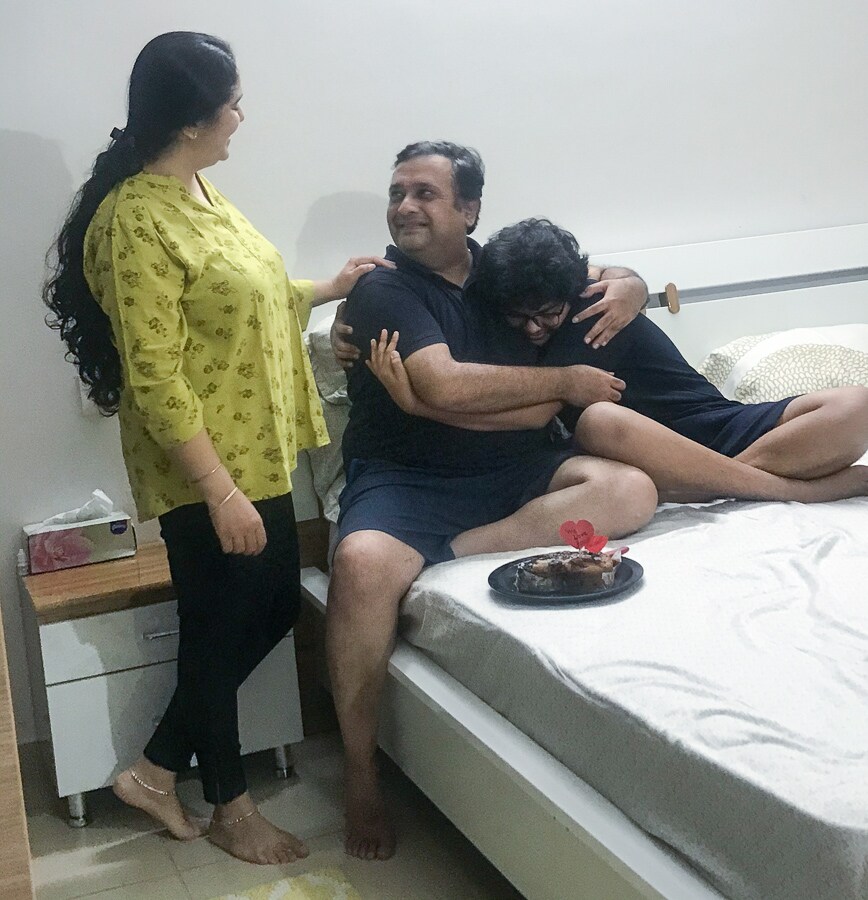
Image: Tanvi Murjani
Kamlesh Murjani, Former head of operations, Artista, Dubai
Age: 44
Kamlesh Murjani was in Dubai when countries across the world started announcing lockdowns. Although he had been there on work for close to six months, the anxiety of not being with his wife and children in Bengaluru in the midst of a pandemic was giving him sleepless nights. “I wanted to be there for my family,” he says.
Murjani knew the economy was in a bad state and would only get worse. Yet, he quit his job at Dubai-based architectural and interior product company Artista, and booked himself on one of the repatriation flights. But the fear of travelling loomed large in his mind. “I had to take the tough call because there was no certainty of when this would end,” he explains. “I couldn"t be away from my family for that long.”
Once he reached Bengaluru, he was in a hotel for seven days. Murjani"s coping mechanism was simple: To treat quarantine as though it was a regular work day. “I avoided all possible negative thoughts and my family and friends were constantly in touch with me,” he says. “But the fifth day is when the solation finally got to me.” When he got home, it was another seven days of home quarantine.
On June 5, when his quarantine ended at 9.45 pm, his wife Tanvi and children got him a cake to celebrate. “Usually, when I come back from Dubai, I"m very excited to see them. But this time I felt emotionally drained, as though some war had just ended.”
First Published: Jun 17, 2020, 16:49
Subscribe Now